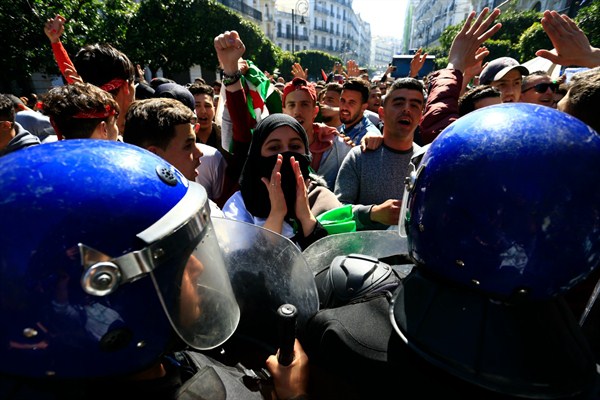In any other country, the news that peaceful demonstrations had forced the incumbent president to drop his unpopular re-election bid would have been a startling announcement. But given Algeria’s political system, President Abdelaziz Bouteflika’s move to withdraw his candidacy for a fifth presidential term and postpone April’s elections, made public on Monday, was welcomed by protesters as only a good start.
Amid a growing protest movement, Algerians are being cautious about Bouteflika’s announcement because of what they call le pouvoir—the shadowy “power” that rules Algeria, made up of an assortment of aging army generals, secret service operatives and party apparatchiks. For decades, they have wielded control from behind the scenes, choosing presidential candidates, rigging elections, dividing opposition movements and using repression when needed. Every important decision is taken behind closed doors. In a way, no one really knows who rules Algeria.
When it became independent in 1962 after its violent war of liberation from France, Algeria erupted onto the world stage as a symbol of post-colonial independence. Its guerrilla war against the larger French army was a case study in armed resistance. If Algeria was able to fight off its formidable adversary and win its independence, then anything seemed possible. For other liberation movements, a visit to Algiers to win the support of Algeria’s leadership almost became a rite of passage.

